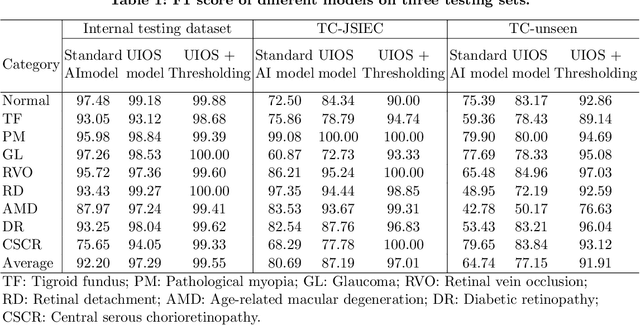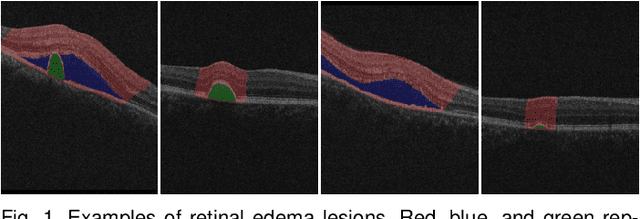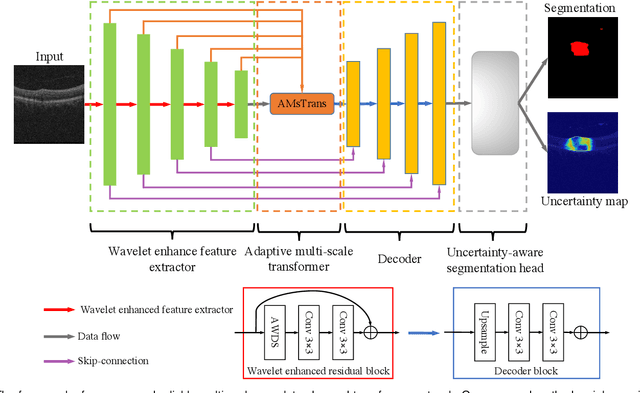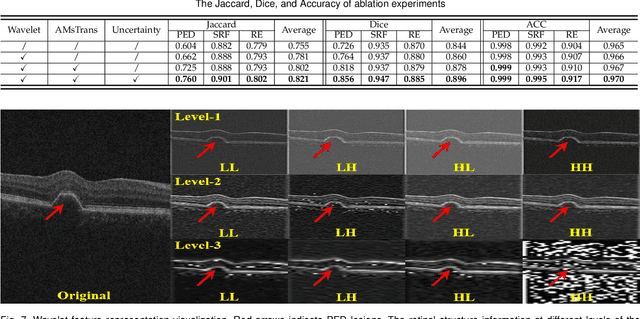Qingquan Meng
Uncertainty-inspired Open Set Learning for Retinal Anomaly Identification
Apr 08, 2023



Abstract:Failure to recognize samples from the classes unseen during training is a major limit of artificial intelligence (AI) in real-world implementation of retinal anomaly classification. To resolve this obstacle, we propose an uncertainty-inspired open-set (UIOS) model which was trained with fundus images of 9 common retinal conditions. Besides the probability of each category, UIOS also calculates an uncertainty score to express its confidence. Our UIOS model with thresholding strategy achieved an F1 score of 99.55%, 97.01% and 91.91% for the internal testing set, external testing set and non-typical testing set, respectively, compared to the F1 score of 92.20%, 80.69% and 64.74% by the standard AI model. Furthermore, UIOS correctly predicted high uncertainty scores, which prompted the need for a manual check, in the datasets of rare retinal diseases, low-quality fundus images, and non-fundus images. This work provides a robust method for real-world screening of retinal anomalies.
Reliable Joint Segmentation of Retinal Edema Lesions in OCT Images
Dec 01, 2022



Abstract:Focusing on the complicated pathological features, such as blurred boundaries, severe scale differences between symptoms, background noise interference, etc., in the task of retinal edema lesions joint segmentation from OCT images and enabling the segmentation results more reliable. In this paper, we propose a novel reliable multi-scale wavelet-enhanced transformer network, which can provide accurate segmentation results with reliability assessment. Specifically, aiming at improving the model's ability to learn the complex pathological features of retinal edema lesions in OCT images, we develop a novel segmentation backbone that integrates a wavelet-enhanced feature extractor network and a multi-scale transformer module of our newly designed. Meanwhile, to make the segmentation results more reliable, a novel uncertainty segmentation head based on the subjective logical evidential theory is introduced to generate the final segmentation results with a corresponding overall uncertainty evaluation score map. We conduct comprehensive experiments on the public database of AI-Challenge 2018 for retinal edema lesions segmentation, and the results show that our proposed method achieves better segmentation accuracy with a high degree of reliability as compared to other state-of-the-art segmentation approaches. The code will be released on: https://github.com/LooKing9218/ReliableRESeg.
 Add to Chrome
Add to Chrome Add to Firefox
Add to Firefox Add to Edge
Add to Edge